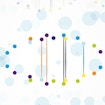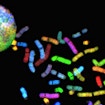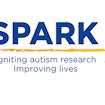
SFARI is pleased to announce that it has awarded 14 grants over the past year in response to the Explorer Awards request for applications.

SFARI is pleased to announce that it has awarded 14 grants over the past year in response to the Explorer Awards request for applications.

SFARI is pleased to announce that it has awarded 27 grants (21 Pilot Awards and 6 Research Awards) in response to the 2016 Pilot and Research Awards request for applications.

Presentations that will be given by SFARI Investigators at Neuroscience 2016 in San Diego (November 12-16) are highlighted.

New Simons VIP data have recently been added to SFARI Base. This data release includes phenotypic data from individuals with 16p11.2 copy number variants (CNVs), 1q21.1 CNVs, GRIN2B mutations and SCN2A mutations (all enrolled in the Phase 2 study). New genetic data (single nucleotide polymorphism microarray data and molecular inversion probe sequencing data) are available for many of the 16p11.2 CNV families enrolled in Phase 1.

Plans are underway to perform whole-genome sequencing of the entire Simons Simplex Collection (SSC). Genomes from 553 families (2,174 genomes) have been sequenced and are available to approved researchers with no publication embargo restrictions. An additional 619 families (2,476 genomes) are currently being sequenced and are expected to be available in the fall of 2016. A four-month publication embargo will apply to that batch of samples. Sequencing of the entire collection is expected to be completed by late 2017.

Autism BrainNet has begun distributing postmortem brain tissue to qualified investigators working on autism and related neurodevelopmental disorders. Initially, distributed tissue will be restricted to donations previously collected by the Autism Tissue Program. Distribution of new donations (collected under the auspices of Autism BrainNet) is expected to begin in the fall of 2016.

New data were added to SFARI Gene in June. This data release included the addition of new human genes implicated in autism, new animal models, and new protein-protein and protein-nucleic-acid interactions of relevance for autism.

SFARI today announced the launch of SPARK, an online research initiative designed to become the largest autism study ever undertaken in the United States. SPARK will collect information and DNA for genetic analysis from 50,000 individuals with autism — and their families — to advance our understanding of the condition’s causes and accelerate the development of new treatments and supports.